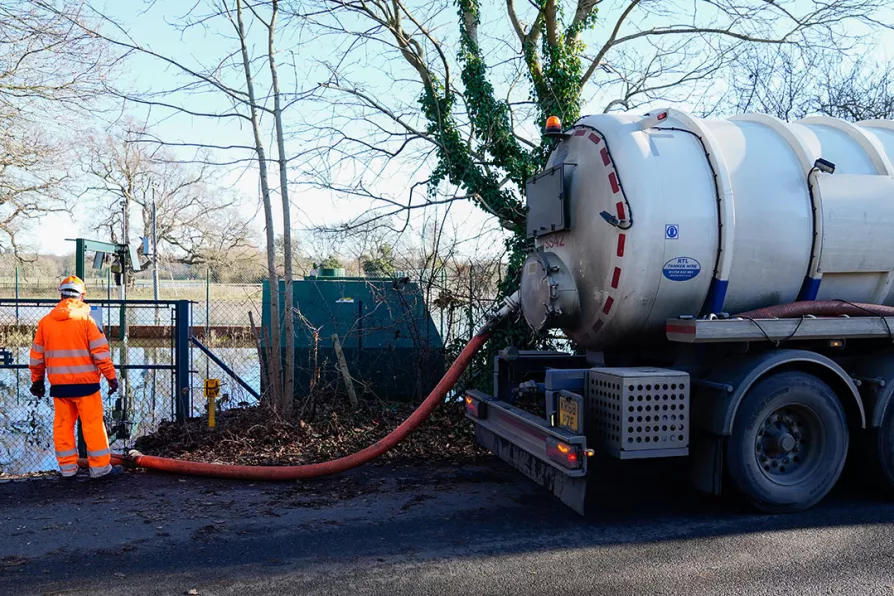
 A tanker pumping out excess sewage from the Lightlands Lane sewage pumping station in Cookham, Berskhire which flooded after heavy rainfall, January 10, 2024
A tanker pumping out excess sewage from the Lightlands Lane sewage pumping station in Cookham, Berskhire which flooded after heavy rainfall, January 10, 2024
LABOUR faced calls for water nationalisation today, with broadcaster Stephen Fry warning that the current situation is “insane.”
Environment Secretary Steve Reed announced today that water bosses will face criminal charges and be stripped of their bonuses for repeated illegal sewage dumping under tightened-up regulations he will introduce to Parliament.
But he could not say what level of dumping would need to happen before criminal charges would be triggered when questioned over the plans.
And he also ruled out temporarily nationalising heavily indebted Thames Water, saying there is “no need to have undue concerns at the moment” and that there is “no threat to water supply.”
Thames Water has had its credit rating downgraded to “junk” status by Moody’s, indicating that the influential ratings agency thinks the privatised utility is likely to default on its debt and may add to its financial pressures.
Regulator Ofwat, discredited in the eyes of many for its failure to do its job, has said it will impose a “turnaround oversight regime” on Britain’s biggest water supplier.
In a BBC interview today Mr Reed said he would clean up Britain’s waterways by making the water bosses face criminal charges if they are responsible for “persistent, severe levels of illegal sewage dumping” and banning the “payment of their multimillion-pound bonuses while they’re overseeing that kind of failure.”
But calling for nationalisation, Martin Abrams, who is on Labour grassroots movement Momentum’s national co-ordinating group, said: “This is not good enough. Steve Reed has already waved through the proposed inflation-busting increases to water bills, and now there’s ambiguity about how many illegal sewage discharges he’ll allow privatised water companies to get away with.
“If Steve Reed is serious about getting tough with the privatised water companies, he’d say ‘not a penny more’ on water bills and when they inevitably collapse due to their own financial and environmental mismanagement, take them into public ownership without any shareholder buyout costs.”
Responding to Mr Reed’s announcement, Mr Fry said: “In the days of Brexit, we heard that phrase used again and again: ‘take back control.’ But not to have control of our water always struck me as insane for a country not have control of its rivers, lakes and drinking water.”
The Environment Agency said the number of serious pollution incidents last year rose from 44 in 2022 to 47 in 2023, saying water firms Thames, Anglian, Southern and Yorkshire were responsible for 90 per cent of cases.

















